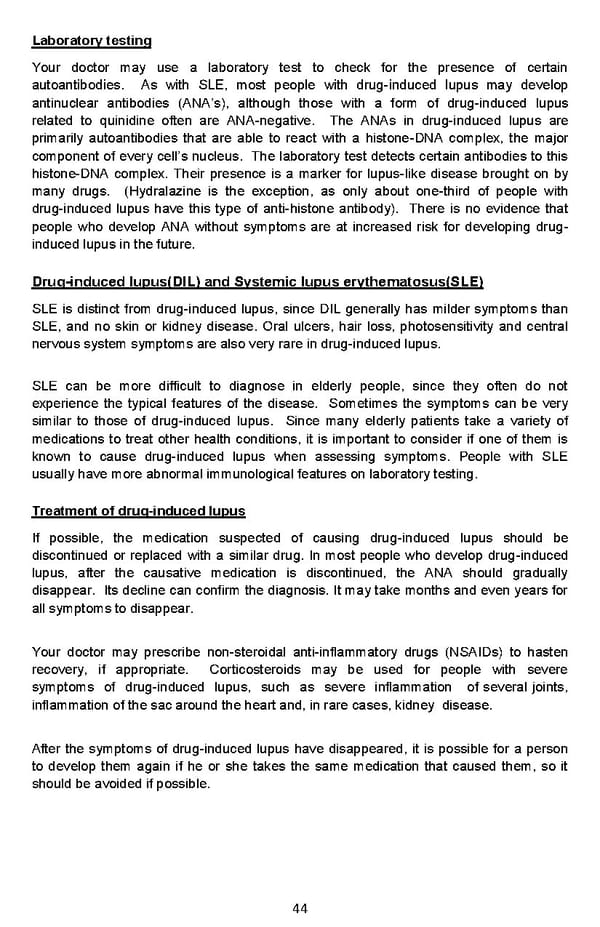Laboratory testing Your doctor may use a laboratory test to check for the presence of certain autoantibodies. As with SLE, most people with drug-induced lupus may develop antinuclear antibodies (ANA’s), although those with a form of drug-induced lupus related to quinidine often are ANA-negative. The ANAs in drug-induced lupus are primarily autoantibodies that are able to react with a histone-DNA complex, the major component of every cell’s nucleus. The laboratory test detects certain antibodies to this histone-DNA complex. Their presence is a marker for lupus-like disease brought on by many drugs. (Hydralazine is the exception, as only about one-third of people with drug-induced lupus have this type of anti-histone antibody). There is no evidence that people who develop ANA without symptoms are at increased risk for developing drug- induced lupus in the future. Drug-induced lupus(DIL) and Systemic lupus erythematosus(SLE) SLE is distinct from drug-induced lupus, since DIL generally has milder symptoms than SLE, and no skin or kidney disease. Oral ulcers, hair loss, photosensitivity and central nervous system symptoms are also very rare in drug-induced lupus. SLE can be more difficult to diagnose in elderly people, since they often do not experience the typical features of the disease. Sometimes the symptoms can be very similar to those of drug-induced lupus. Since many elderly patients take a variety of medications to treat other health conditions, it is important to consider if one of them is known to cause drug-induced lupus when assessing symptoms. People with SLE usually have more abnormal immunological features on laboratory testing. Treatment of drug-induced lupus If possible, the medication suspected of causing drug-induced lupus should be discontinued or replaced with a similar drug. In most people who develop drug-induced lupus, after the causative medication is discontinued, the ANA should gradually disappear. Its decline can confirm the diagnosis. It may take months and even years for all symptoms to disappear. Your doctor may prescribe non-steroidal anti-inflammatory drugs (NSAIDs) to hasten recovery, if appropriate. Corticosteroids may be used for people with severe symptoms of drug-induced lupus, such as severe inflammation of several joints, inflammation of the sac around the heart and, in rare cases, kidney disease. After the symptoms of drug-induced lupus have disappeared, it is possible for a person to develop them again if he or she takes the same medication that caused them, so it should be avoided if possible. 44
 Living Well With Lupus Facts Booklet Page 43 Page 45
Living Well With Lupus Facts Booklet Page 43 Page 45